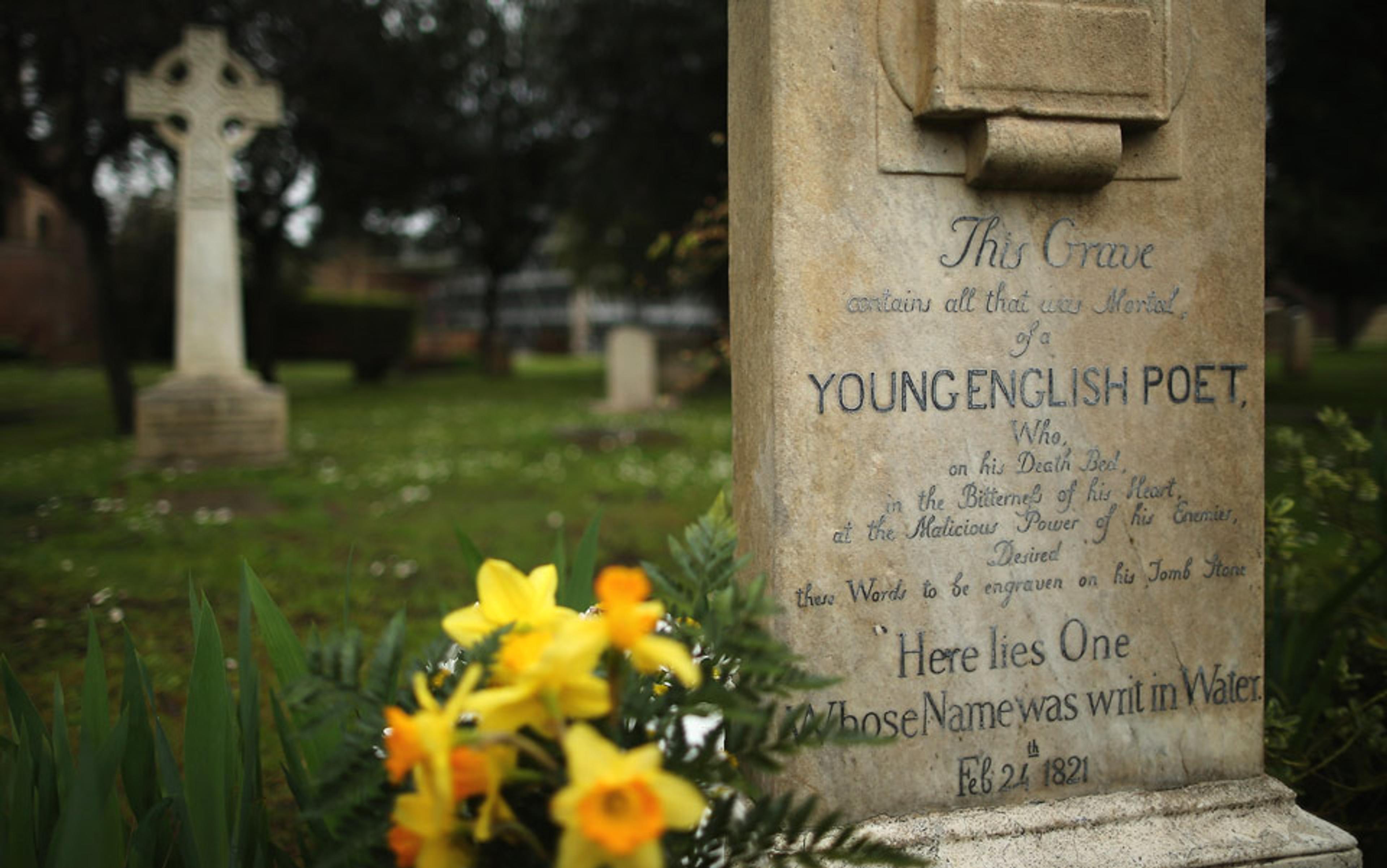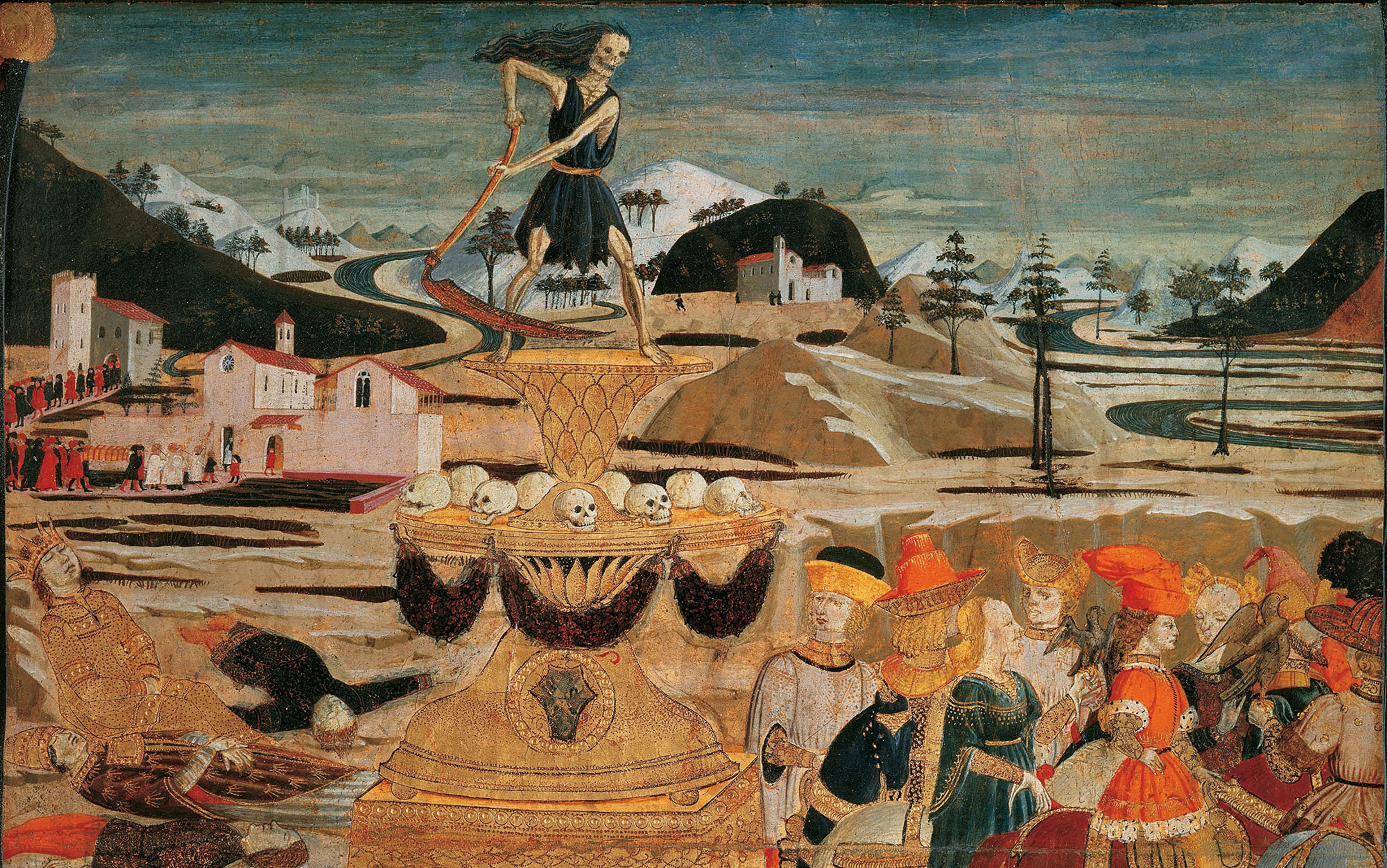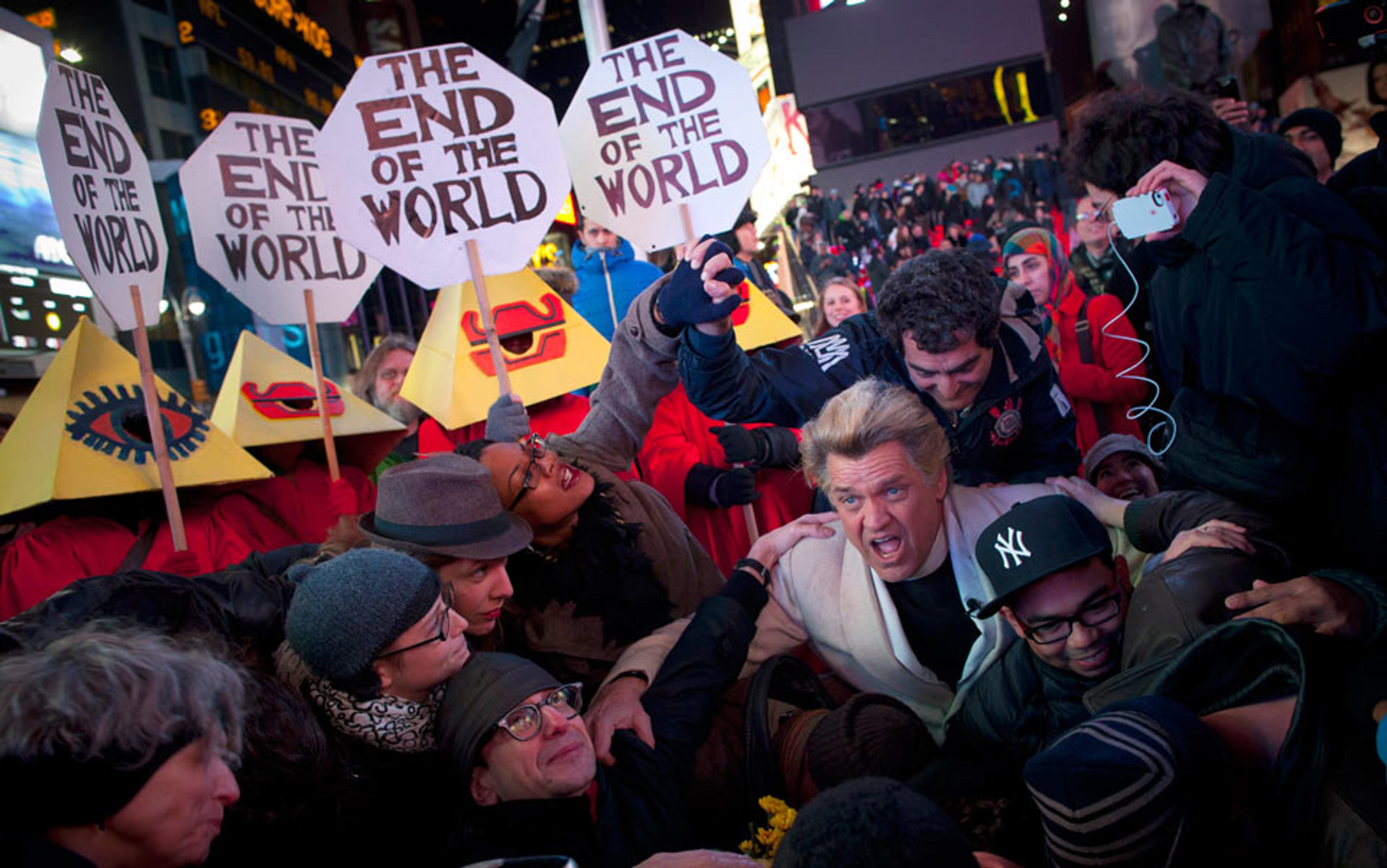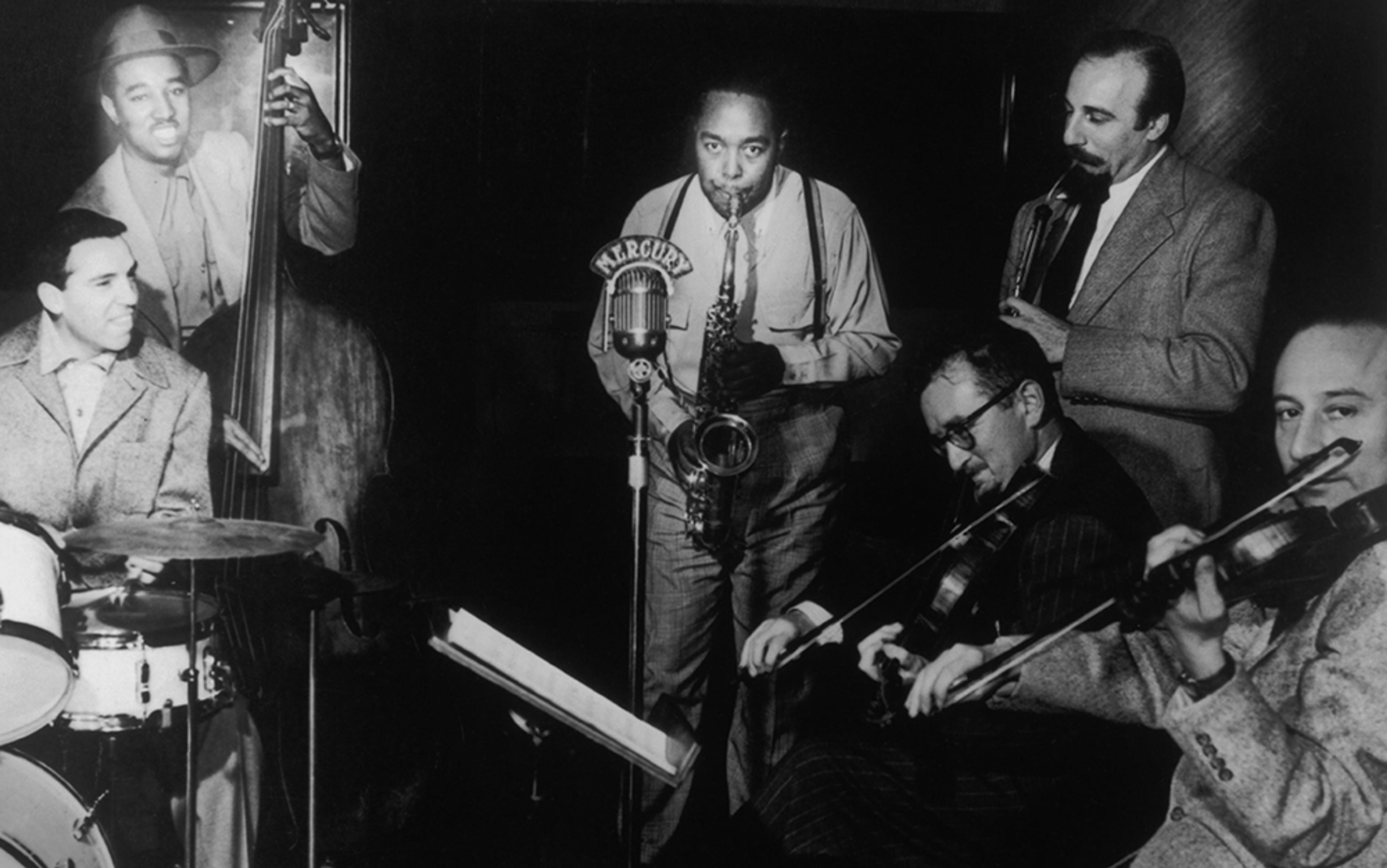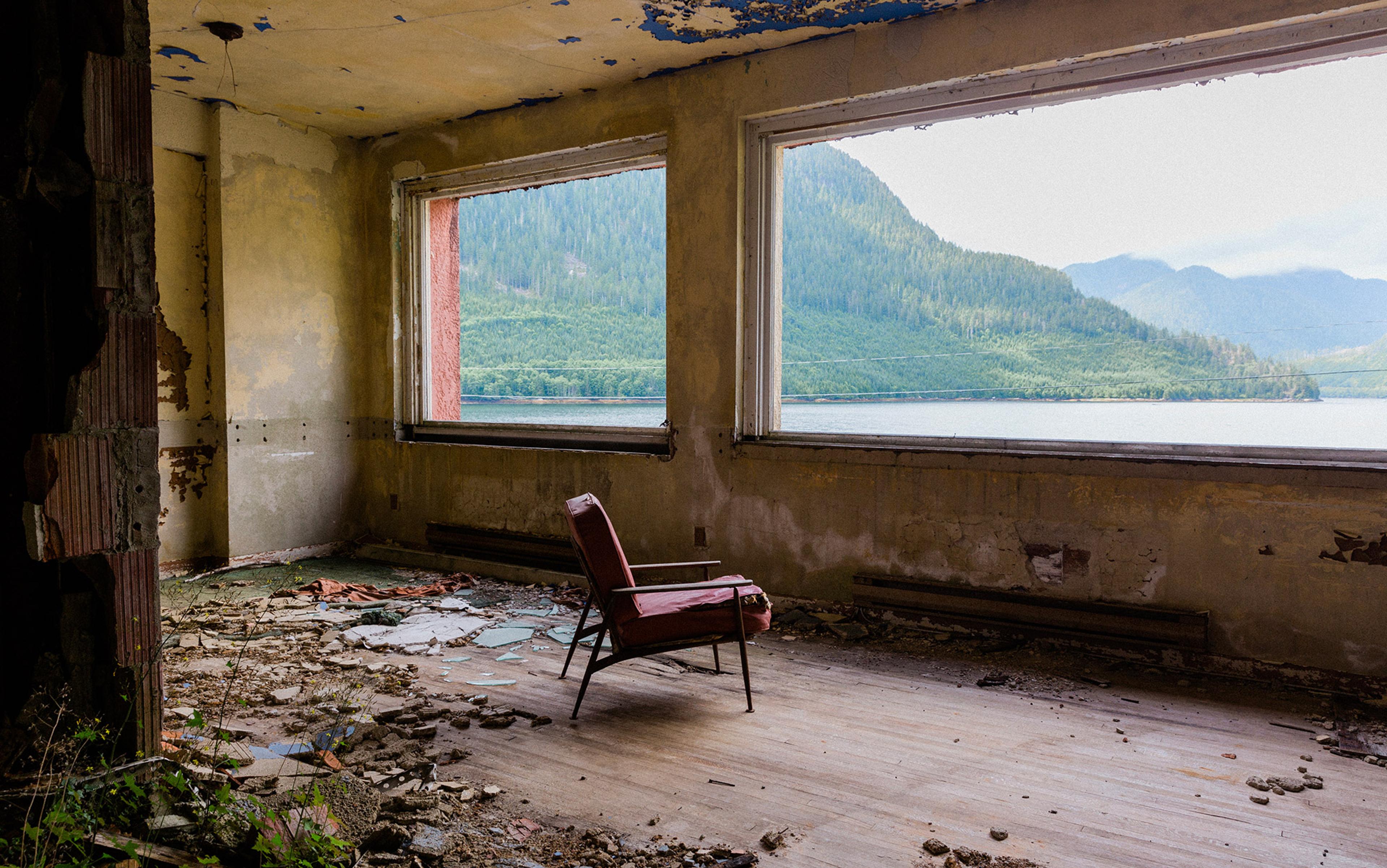My last remaining grandparent is 97 years old. She has dementia, can barely hear, has no real friends, and spends most of her waking hours shouting ‘Garbage!’ at the TV that sits in the corner of her small room in an assisted living home. It’s not all grim. My brother and I love her, and she gets to see her daughter, my mother, for a few hours every week. The highlight of these visits is when my grandmother re-reads an eight-page autobiography that she wrote years ago. Because she can’t remember reading it the previous week, and only faintly recalls her own history, it never fails to fascinate her. Unfortunately, there is little else in her life that we could call enjoyable. Yet when my mother asked my grandmother if she was happy to be alive (yelling the question directly in her ear), she replied: ‘Of course! Everyone wants to live as long as possible.’
Well, not everyone. There would be no ‘right to die’ movement if chronic illness didn’t render some lives physically intolerable. But mostly she’s right — no matter how dismal our lives look to outsiders, most of us try to stave off the grim reaper as long as we can. And from an evolutionary perspective, this makes a lot of sense. The human genome wouldn’t have amounted to much if it had left us indifferent to our own survival. We need to want to live. But this raises a troubling question. Is our lust for life nothing more than a biological scam, a bit of selfish-gene trickery that keeps us above ground so that we breed and care for offspring? And if so, should we keep marching along like the compliant grinning fools our genes take us to be, or should we resist?
Of course, our genes cannot really take us for anything, nor can we resist them or even know what it would mean to do so. We are not dualistic beings who are part rationality and part biology; we can’t rebel against our biological selves any more than we can leap out of our own skeletons to stretch our legs and get some fresh air. Nevertheless, it is possible for us to ponder nature’s general workings and sabotage the evolutionary bottom line. We already do this with birth control, which allows us to reap the benefits of reproduction-incentivising pleasure without having to endure the burdens of reproduction. If we’re not opposed to hacking biology, why not subvert our desire to live as long as possible, too?
Clearly, we might have reasons for living longer that fall outside of self-interest. We might want to enrich the lives of our family and friends, or see our life’s work through to completion. But is staying alive ever a smart choice for us on purely selfish, non-reproductive, grounds? Can the aversion to death that whips us onward withstand rational self-reflection? Or is it merely the Machiavellian machinations of our naturally selected genes, in a conspiracy with the pro-life cultures, traditions and ideologies that grew out of an unquestioning obedience to these survival urges? The answer depends on what happens after we die.
Most religions hold that our consciousness and identity persist after death, in one otherworldly realm or another, but it’s rarely the same one. Indeed, there are a wide variety of possible destinations for those who believe in an afterlife, most of them assigned according to our behaviour during life. Some of these places are better than life as we know it, but some are worse.
If there is an afterlife, whether you want to live a long life or a short one would depend to some extent on whether your afterlife would be an upgrade or a demotion. Those who believe that they are going to hell, or even somewhere just slightly less agreeable than Earth, would be wise to eat right, exercise and look both ways before crossing the street. To those bound for a better place, on the other hand, an early demise has something to recommend it.
There are a few living authors who claim to have visited heaven, but judging from their cheerful media appearances, that first hit of eternal bliss hasn’t left them overly desperate for another. Heaven is no heroin, apparently. The story of Colton Burpo, the four-year-old boy whose trip to the great beyond inspired his father’s book Heaven is for Real (2010), reassures us that our souls resemble ourselves in our 20s and 30s, thereby undercutting another reason to long for a premature end. There’s no need to die young in order to look your best for the pearly gates, if strolling in as your ideal self is part of the deal. In any case, the longest conceivable human life is so minute compared with the unfathomable enormity of forever that, if there is an eternal afterlife, any mortal span will vanish into statistical insignificance by comparison. The same goes for the hellbound: an extra few decades of mortal life isn’t much of a buffer against an eternity of lava baths and acid showers.
If there is any risk of being reincarnated as a dissatisfied pig, you’d be wise to cling to human existence for as long as you can
Length of life can still matter, but only if our actions in life determine our eternal destination. If getting to heaven is a matter of having certain beliefs or performing certain deeds, it would be devastating to expire before you managed to meet those requirements. On the other hand, if you start off with the right beliefs and then lose your faith — or rack up a few unforgivable sins in your final hours — you would have eternity to wish you had died a little younger, before you’d slipped up.
Reincarnation addresses some of the problems of a more straightforward afterlife. It overcomes the monotony of eternity by slicing it into an endless array of new bodies and existences, with the same soul or consciousness (but not necessarily memory) threading them all together. The trouble is, not everyone agrees about how new incarnations are assigned, and that makes reincarnation one of the trickiest afterlives to game.
If our next lives are assigned randomly, then determining whether it makes sense to stay in any particular life would be a matter of gauging the world’s average life quality and figuring the odds that you will have better luck next time. Rebirth rewards pickiness; it makes sense to rush through any dull or deprived lives, but when you luck out with a cinematic life, the sort of life that has you deftly making hard choices, winning hearts and being knighted before the end, you had better stay on through the outtakes and pray that there’s a sequel.
But what if our initial life circumstances aren’t all down to chance? In Reincarnation and the Law of Karma (1908), William Walker Atkinson, a pioneer of the New Thought movement, says that our previous life experiences influence our future lives, though not necessarily through divine punishment or reward. Atkinson discouraged a moralistic approach to reincarnation, but even so, he couldn’t definitively disprove the popular belief that working hard and being kind to others would give us a better life in the future. If that’s the case, then casual self-destruction to escape a less-than-ideal reincarnation might only perpetuate the downward spiral. A smarter strategy would be to quickly learn how to avoid harming others, then join a heroic, risky profession and hope for the best.
Of course, there are drawbacks to dying young in a reincarnation-based world. The quicker you die, the more time you spend repeating the early stages of life, not to mention any between-incarnation resting periods or soul-scrubbings. For example, if you found adolescence excruciating, you would want to prolong even your most dreadful incarnations, in order to put some space between childhoods. On the other hand, if you loved school and the thrills of young adulthood and never cared much for maturity, you should aim for a rock-and-roll death in your 20s every single time.
The possibility of being reborn as a member of a different species complicates things further. No matter how you would answer the question ‘Is it better to be a pig satisfied or a human dissatisfied?’ (I personally think there’s a case for the satisfied pig) the fact is that, with billions of animals being factory-farmed around the globe, most of us are lucky to be humans. If there is any risk of being reincarnated as a dissatisfied pig, you’d be wise to cling to human existence for as long as you can. And while you’re at it, maybe you should also protest factory farming to juice your karma.
The dead aren’t stuck in a limbo fretting over the books they could have written or the people they could have loved
In the 1880s Friedrich Nietzsche revitalised a perverse twist on reincarnation with his take on the doctrine of eternal recurrence, the notion that we all have one life to live, but we repeat every moment of it in an unremitting, infernal loop, each run feeling like the first. In The Gay Science (1882), a sadistic smirking demon explains the concept:
This life as you now live it and have lived it, you will have to live once more and innumerable times more; and there will be nothing new in it, but every pain and every joy and every thought and sigh and everything unutterably small or great in your life will have to return to you, all in the same succession and sequence — even this spider and this moonlight between the trees, and even this moment and I myself. The eternal hourglass of existence is turned upside down again and again, and you with it, speck of dust!
If this is indeed what’s in store, then ‘Live fast and die young’ could be prudent advice. If your life was short, but looped, you’d be eternally young, a condition that is much sought-after. But not everyone can count on perpetually recurrent golden years. Planning for tomorrow and saving the best for last could backfire if you die suddenly, leaving all your best years laboured for and dreamed about, but never lived — always in mind but eternally out of reach.
Finally, there is annihilation to consider. Suppose it’s true that our souls don’t float off to another dimension, and we live this life only once. When we die, our subjectivity shuts down altogether. The world marches on, but not us. If all that we are is obliterated at death, our current lives are all we’ll ever have. This might seem to make a longer life more important, but the truth is just the opposite. If annihilation is our fate, the selfish reasons for living longer become irrelevant because death renders lifespan moot.
The ancient philosophers Epicurus and Lucretius are the most famous proponents of this position. For them, death was nothing to fear, because fear is a subjective experience — which is exactly what annihilation ends. Sure, you lose everything at death, but conveniently that also includes your perception of loss. In De rerum natura (50 BC), Lucretius rebukes those who mourn in anticipation all the so-called goods of life that death forever steals:
No more for you the welcome of a joyful home and a good wife. No more will your children run to snatch the first kiss, and move your heart with unspoken delight. No more will you be able to protect the success of your affairs and your dependents. ‘Unhappy man,’ they say, ‘unhappily robbed by a single hateful day of all those rewards of life.’ What they fail to add is: ‘Nor does any yearning for those things remain in you.’ If they properly saw this with their mind, and followed it up in their words, they would unshackle themselves of great anguish and fear.
A thought experiment might help to illustrate this view. Suppose you win a free vacation, with one catch: as soon it’s over, the Vacation Awarding Committee erases the trip from your mind and reverses every other physical consequence of it. That includes the ravages of stress from sitting near a screaming toddler on the plane, the immune-bolstering benefits of relaxing in the spa, the money you won at the casino, and the epiphany you had about quitting your job and opening a scuba-dive shop. Even the length of the vacation has no lingering impact: no matter how long or short it was as you experienced it, once it’s over, you’re no older or younger than you were before you took the trip, and everything else in your life is just how you left it. Regardless of how this vacation goes, the moment you get back, everything will be as if it never happened at all.
If adulthood means putting away childish things, annihilation means putting away all things
So once the trip ends — as it inevitably must — nothing about how it went makes a single lasting difference whatsoever. Does it matter to you, then, whether it was long or short?
Annihilation at death is just like the end of this imaginary vacation. It erases our memories, along with everything else that happened to us during our lives. The dead aren’t stuck in a limbo fretting over the books they could have written or the people they could have loved. You cannot hurt, inconvenience or otherwise disadvantage someone who doesn’t exist. Indeed, if the annihilation story is right, nonexistence is all that death can bring us. If we don’t maintain any perception or knowledge of how our lives went or what happens afterwards, the only thing that can matter is the way our lives and deaths affect those who survive us.
The vacation hypothetical is an attempt to approximate the impossible perspective of the non-existent. In The Metaphysics of Death (1993) — an essay collection devoted to this question of when death is a harm — the moral philosophers Bernard Williams and Fred Feldman each contribute essays that challenge Epicureans to judge the importance of lifespan from the perspective of the living instead of the dead. If Williams and Feldman considered my vacation-with-no-lasting-impact hypothetical, they would turn my attention towards the vacation itself. However I feel, or don’t feel, about it afterwards, I’d obviously prefer to have a pleasant life/vacation while it’s occurring. And from here it’s not much of a stretch to suggest that we would want our vacation/life to extend as far into the future as possible, too. But for this as-it-occurs variation on the vacation thought experiment to remain analogous to life and death, it needs to be altered. After all, you might want the vacation to persist only in order to avoid returning to a dreary real world. If ending the vacation means it’s back to the office and the Tube, this is no longer equivalent to annihilation; it’s more like plummeting from heaven to hell. For it to resemble annihilation, we’d have to add that when the vacation is over and all traces of it are removed, you would no longer desire to experience any of the pleasures it offered, nor would you ever suffer from their lack.
This should make it easier for some of us to accept the vacation’s eventual end. Does it mean that we’re now all indifferent to whether our lives are relatively short or long? Probably not. But all that proves is the impossibility of fully empathising with a perspective we don’t have, including our own future attitudes. When philosophers cry about the treasures of life we lose when we die, they do so from the perspectives of those who are attached to the intellectual, artistic, familial, productive and hedonistic pleasures of life. Annihilation is a radical, perhaps incomprehensible break from these attachments. If adulthood means putting away childish things, annihilation means putting away all things, and this is indeed a shocking change. But it’s a change to which all of us will seamlessly adapt.
When we fear an annihilation death, we are like infants who fear adulthood because they won’t get to breastfeed anymore. There might nevertheless remain a nagging sense that we selfishly want to live longer to experience more, to neatly wrap up our life stories and to see what will happen in the world. But no matter how long we live, annihilation undermines it all. Even if we last to 125 and finally get to see affordable, mass-produced hover boards, we’ll all forget about them and everything else the moment we die, making it just like we never got to see anything at all — which kind of defeats the purpose of living longer in order to see more.
Even if pleasure were valuable in and of itself, and not just as a rough and imperfect guide towards fitness-enhancing behaviour (as the theory of evolution holds), any extra praemia vitae we capture by living longer will ultimately — if annihilation is true — do us no more good than the bathtub of pennies I dreamed about last night. That’s not to say that there are no reasons for us to want to stay alive — survivors will be sad when we’re gone, and an early death could deprive the world of whatever positive things we might have contributed given more time — but if we assume annihilation, none of the selfish reasons to stay alive make sense in the end.
So, please do keep living. Just don’t be so certain that you’re doing it for yourself.
